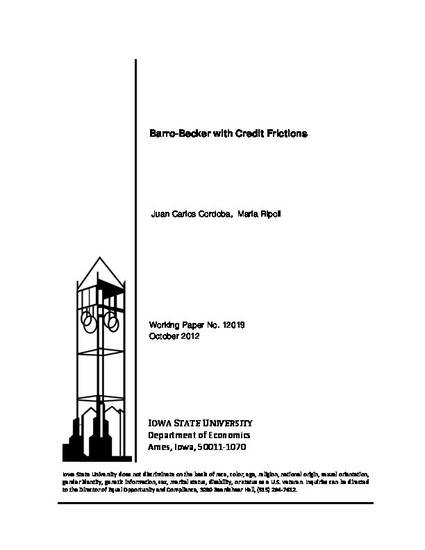
Article
Barro-Becker with credit frictions
Economics Working Papers (2002–2016)
Document Type
Working Paper
Publication Date
10-5-2012
Working Paper Number
WP #12019, October 2012
Abstract
The Barro-Becker model of fertility has three controversial predictions: (i) fertility and schooling are independent of family income; (ii) children are a net financial burden to society; and (iii) individual consumption is negatively associated to individual income. We show that introducing credit frictions into the model helps overturn these predictions. In particular, a negative relationship between fertility and individual wage income can be obtained when the intertemporal elasticity of substitution is larger than one. The credit constrained model can also explain the quantity-quality trade-off: individuals with higher wage income choose more schooling and fewer children.
Disciplines
File Format
application/pdf
Length
35 pages
File Function
This version: October 2012 (First version: January 2010)
Citation Information
Juan Carlos Cordoba and Marla Ripoll. "Barro-Becker with credit frictions" (2012) Available at: http://works.bepress.com/juancarlos-cordoba/7/
